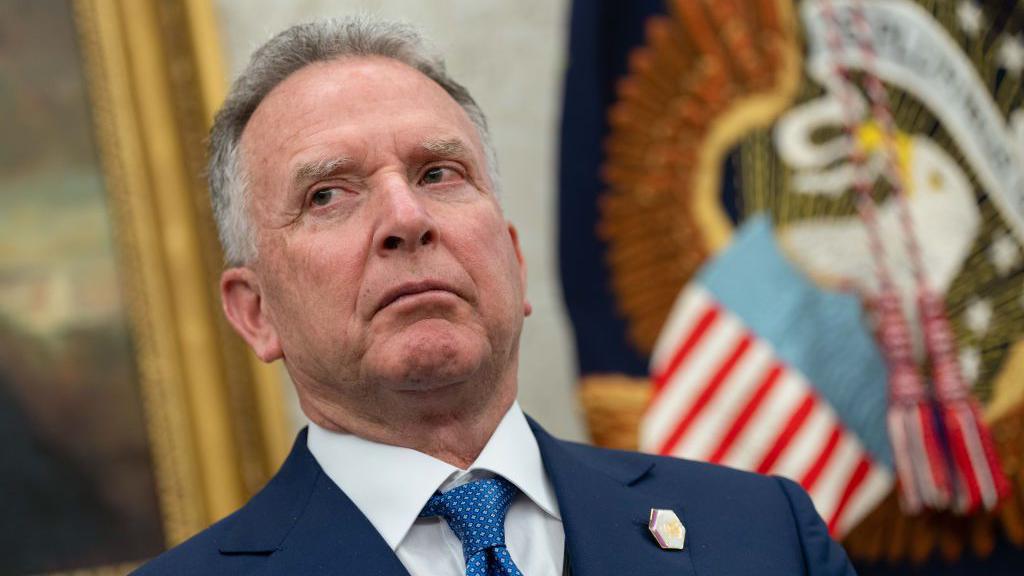Sometimes all it takes is a single social media reply to send people into a frenzy — and that’s exactly what happened when a brief post on X sparked fresh intrigue around ongoing efforts to end the war in Ukraine.
The conversation kicked off after Donald Trump’s foreign envoy, Steve Witkoff, appeared to hint at the origin of a leaked peace proposal without meaning to.
The Comment That Triggered a Guessing Game
While responding to an Axios report focused on quiet U.S.–Russia discussions, Witkoff casually wrote, “He must have gotten this from K.”
That single letter immediately grabbed users’ attention, leading many to speculate who “K” might actually be.
Who Is “K”? Online Sleuths Jump In
Most people landed on one clear frontrunner: Kirill Dmitriev, the Russian official whose insights featured prominently in the Axios piece.
Others tossed Jared Kushner’s name into the mix.
However, two sources who spoke to the Daily Mail quickly shut down the Kushner theory, saying Witkoff never calls him “K” — pushing suspicion right back toward the Kremlin-linked figure.
What the Slip-Up Might Reveal
That offhand comment raised eyebrows, with some analysts wondering whether Russia is intentionally releasing pieces of these confidential negotiations.
Two diplomats, speaking privately, even suggested the White House might have allowed the information to surface to reinforce the message that Trump has been working behind the scenes to push for peace.
Concerns Over Russia’s True Intentions
One former diplomat who previously worked in Europe told the Daily Mail that efforts toward a deal only matter if they actually deliver results.
The diplomat warned that, despite any appearances of cooperation, President Putin is unlikely to abandon his long-term ambitions.
A Quietly Developed 28-Point Peace Roadmap
According to a source familiar with diplomatic talks, the leak revealed that the White House has been crafting a comprehensive 28-point peace blueprint with Russia — an attempt to show progress on Trump’s long-standing promise to bring the conflict to an end.
Inspiration From Middle East Diplomacy
The structure of the plan reportedly pulls from the success of Trump’s negotiators in the Middle East, where Witkoff played a major role in shaping a 20-point Gaza peace strategy that ultimately succeeded.
He is now leading conversations with Russian officials as part of this new initiative.
What the Plan Covers
A Russian official told Axios he feels “optimistic” about the proposal.
According to insiders, the points are spread across four broad themes: guaranteeing security, restoring peace in Ukraine, strengthening European stability, and reshaping U.S. relations with both Russia and Ukraine.
One major issue, however, remains unresolved — who controls territory in eastern Ukraine.
Pentagon Delegation Heads to Kyiv
In a parallel effort, top U.S. military leaders are making their way to Kyiv.
Army Secretary Dan Driscoll is leading a delegation on what officials describe as a fact-finding mission aimed at assessing battlefield conditions and discussing pathways toward ending the conflict.
Senior Military Leaders Join the Trip
Driscoll is joined by several prominent Army figures, including Army Chief of Staff Gen. Randy George, Sergeant Major of the Army Michael Weimer, and Gen.
Chris Donahue. Reporting from CNN suggests Driscoll intends to speak directly with President Volodymyr Zelenskyy about Ukraine’s military needs and ongoing peace initiatives.
Russia’s Public Response Remains Frosty
Despite the increased activity and discussions happening behind the scenes, the Kremlin is not offering much.
When asked for an update, spokesperson Dmitry Peskov simply said there was nothing new to report regarding negotiations to end the war.
Washington Responds With Its Own Pressure
Back in the U.S., Republican lawmakers are pushing forward with legislation designed to tighten the screws on Russia.
Senator Lindsey Graham is backing a bill that gives the president broad powers to impose secondary sanctions and tariffs on countries that continue buying discounted Russian oil and gas.
Other Nations Could Be Targeted Too
The list of impacted countries could grow — with Iran being one of the potential additions.
The move signals that Washington is willing to increase pressure while diplomatic maneuvering continues abroad.
Share on Facebook «||» Share on Twitter «||» Share on Reddit «||» Share on LinkedIn
